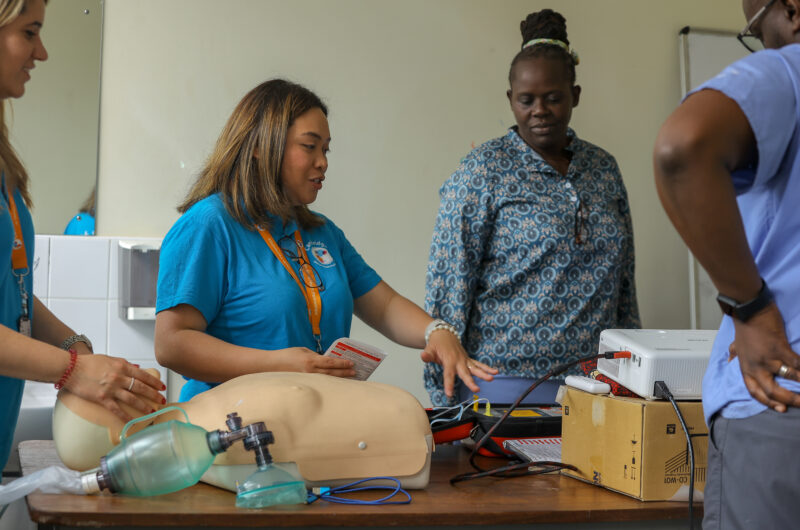By Margaret Baron-Catuday
Margaret Baron-Caturday is a CGHP East of England Global Health Fellow, a Resuscitation Officer at Cambridge University Hospital NHS Foundation Trust (CUH) and a frequent volunteer in her home country of the Philippines.
Through her fellowship Margaret’s been involved in the SCALE Critical Care Project, delivering remote and in-person courses to build the confidence and skills of Ugandan staff. Here she describes the impact on her own learning and development and why the train-the-trainer approach is a sustainable model for ongoing improvement.
“The purpose of my recent visit to Uganda was to meet our Ugandan colleagues face to face as part of the Train the Trainer workshop, following a four-month online course. This in-person visit was essential to consolidate and cement the learning outcomes achieved remotely.
Alongside critical care nurses and midwives, we visited two hospitals in Kampala: Mulago National Referral Hospital and Kawempe National Referral Hospital. Our focus was on didactic learning and peer review, equipping the local healthcare professionals to independently facilitate simulations, deliver lectures, and teach clinical skills.
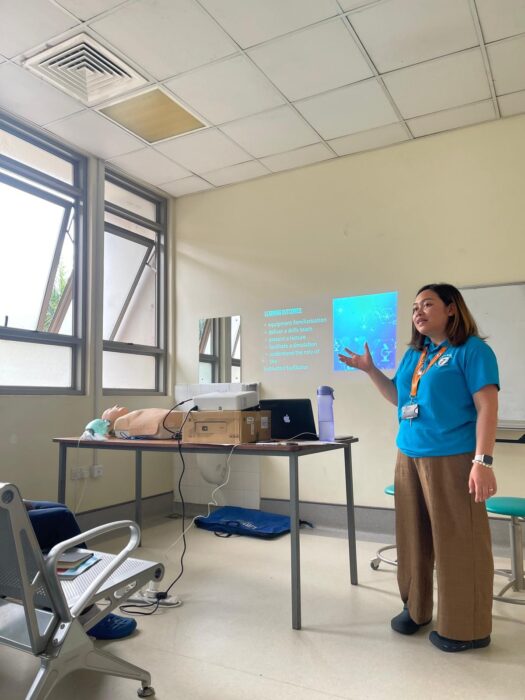
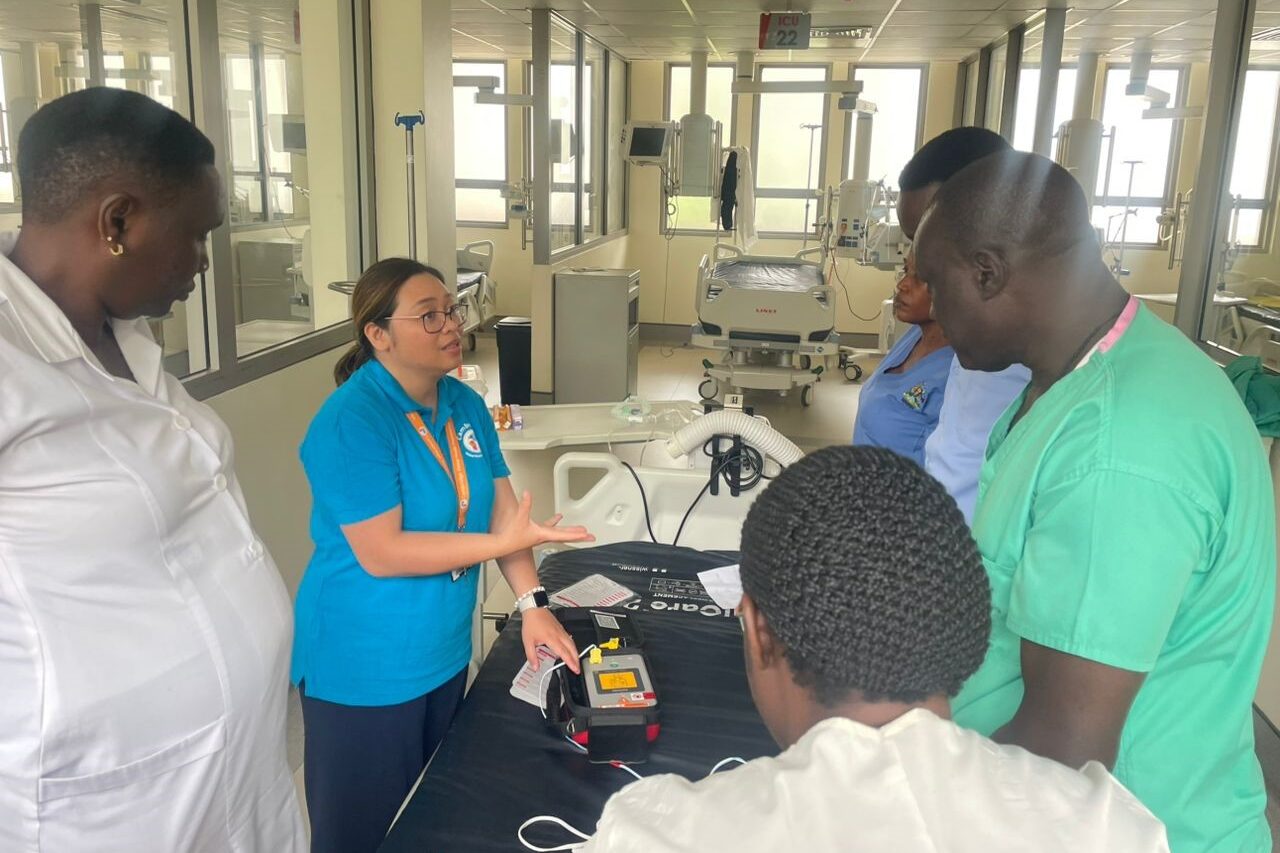
This approach prioritises sustainability by empowering our Ugandan colleagues to take ownership of their own learning needs and maintain education long after international partners have left. The skills and natural teaching abilities of the Ugandan teams are invaluable, and they are the key to sustaining education in their clinical environments.
In addition to the Train the Trainer programme, we also trained critical care staff in refining Basic Life Support and the use of defibrillators, strengthening practical clinical skills vital for emergency care.
The fellowship has transformed my perspective as an instructor. I have become more aware of the cultural dimensions of learning and am committed to making all my teaching inclusive and sensitive to different cultural behaviours.
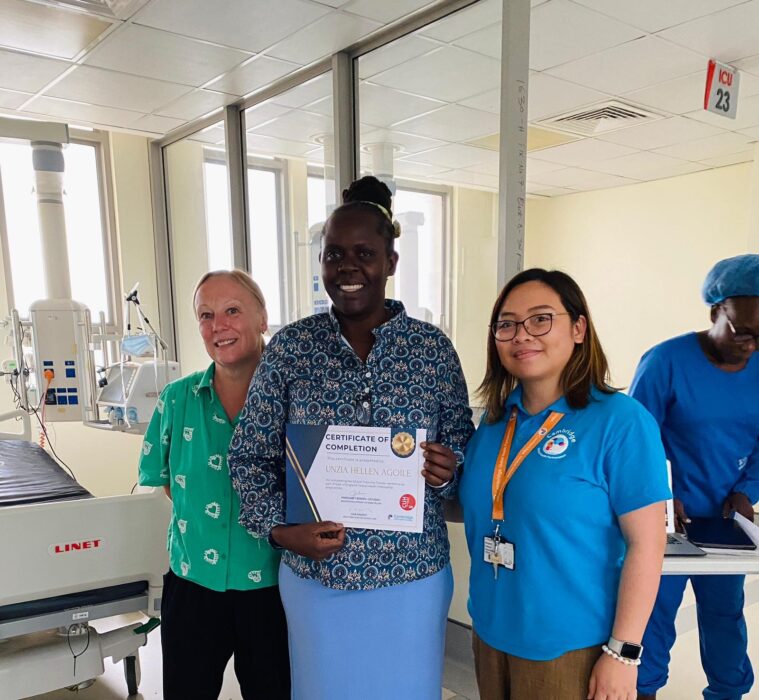
Throughout the visit, I was deeply impressed by the dedication, resilience, and knowledge of Ugandan nurses. Their eagerness to learn and absorb new skills—despite complex challenges and limited resources—was extraordinary. Their positive and cheerful demeanour was inspiring and renewed my own passion for nursing.
The fellowship has transformed my perspective as an instructor. I have become more aware of the cultural dimensions of learning and am committed to making all my teaching inclusive and sensitive to different cultural behaviours. Recognising and respecting learners’ cultural backgrounds helps bring out their best potential.
Finally, this experience has reaffirmed my commitment to global health. I started volunteering internationally in 2018, so I wondered if this fellowship would be my final engagement. Instead, it has inspired me to continue working towards reducing healthcare inequalities worldwide and to embrace the reciprocal learning that international collaboration offers.
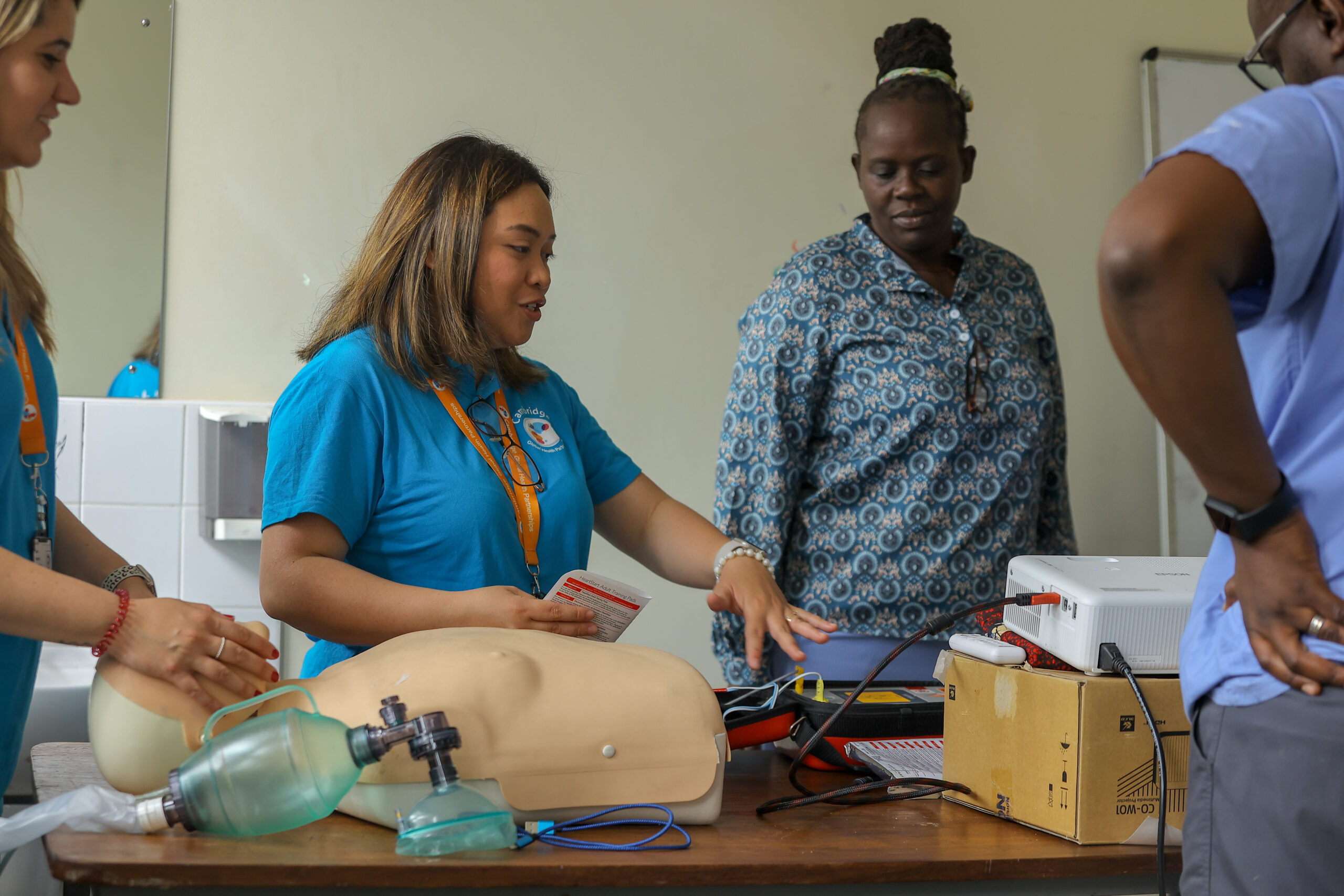
This visit to Uganda was a profoundly enriching experience that strengthened professional ties and fostered sustainable educational development. It reinforced the importance of culturally responsive teaching and highlighted the incredible potential within local healthcare professionals to lead and innovate in their settings. Moving forward, I am motivated to apply these lessons in my future work, continuing to support global health initiatives that prioritise empowerment, resilience, and collaboration. The Fellowship has not only enhanced my skills but also deepened my dedication to advancing equitable healthcare education globally.”
Find out more about the SCALE Critical Care Project, the East of England Global Health Fellowship, or contact us at info@cghp.org.uk
Return to blogs

